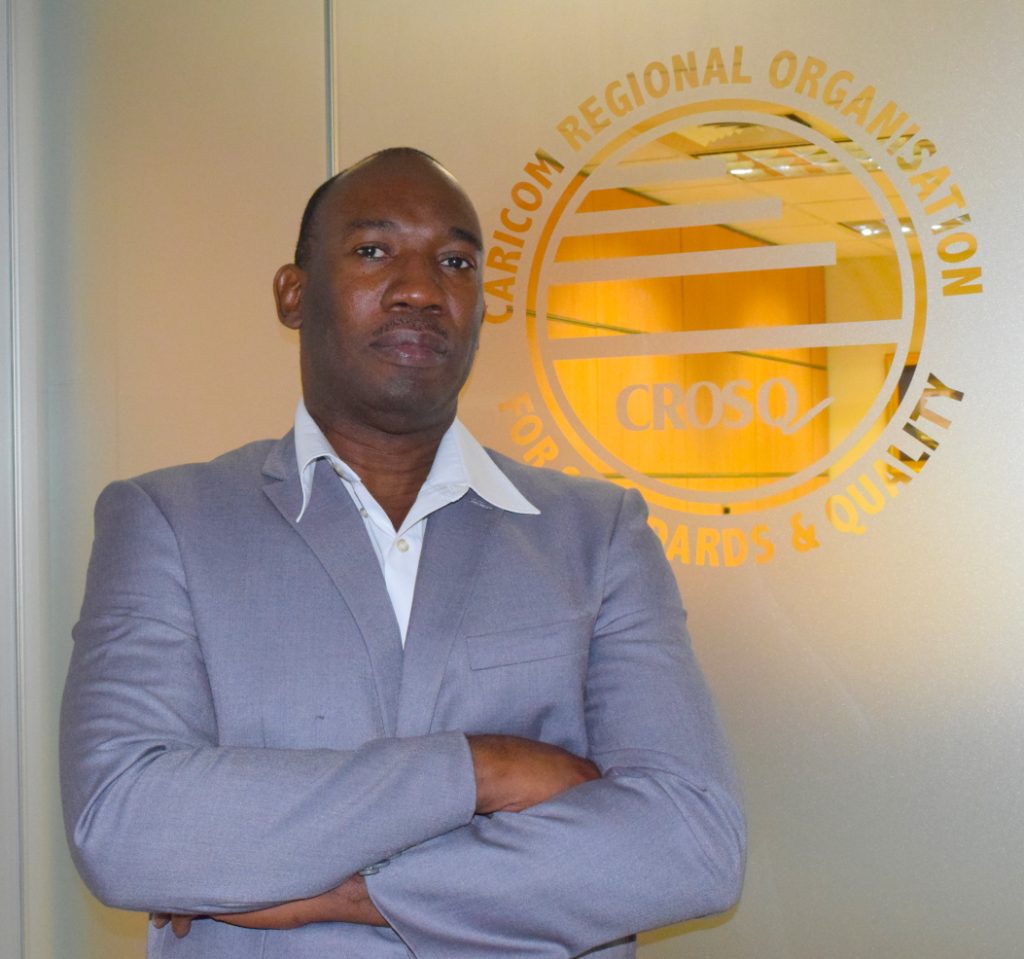CROSQ is determined that despite the ravages of the COVID-19 pandemic, that quality services and systems will be improved in the Caribbean before the end of the 11th European Development Fund Economic Partnership Agreement Programme.
The Technical Barriers to Trade (TBT) component of that programme is being implemented in the region in part by CROSQ, and the organisation’s Technical Officer for Accreditation and Conformity Assessment, Mr. Stephen Farquharson says we’re pulling out all stops to make sure progress happens.
Charged with the oversight for the accreditation of five conformity assessment bodies, two calibration laboratories and the certification of five private sector organisations, Mr. Farquharson says the challenges have been real, but quality experts in the region are pushing forward.
Accreditation assessments have been completed at the labs at Trinidad and Tobago Bureau of Standards and the Grenada Bureau of Standards, which are both being prepared for worldwide recognition for specified tests. The Dominica Bureau of Standards is also on its ways to an official assessment next month, while the National Compliance and Regulatory Authority in Jamaica and the Saint Lucia Bureau of Standards are both in preparatory phases.

The officer also disclosed that the St Kitts and Nevis Bureau of Standards’ chemistry lab is also receiving assistance by the project to expand its’ testing scope.
“For some of the countries especially the smaller ones, I would say that they have been pretty resilient,” said Mr. Farquharson, adding that it is acknowledged that outbreaks of COVID-19 has had impact across the region, but the institutions have shown determination in achieving their recognition status.
“There are some lessons learnt. What I can say about the consultants (who have been working with the labs) is that they have been applauded significantly by the countries. We had three regional consultants – one for Grenada and Dominica, one for Jamaica and Saint Lucia and the third who worked with Trinidad and Tobago.
“All countries have applauded the consultants for the work that they have done so far… COVID has affected the cost of the service because there was no travel, but they have been able to accomplish what they were supposed to accomplish,” said the technical officer.
He explained that the consultants would have done gap audits, looked at any non-conformances to the particular standard that governs the testing, and then worked with the laboratories to close those gaps.
It might have been possible, he surmised, to have seen significantly fewer non-conformances if the consultants had been able to work hands-on with the laboratory technicians throughout the process rather than at the very end as occurred in some countries due to the pandemic’s forced restrictions on travel.
“For example, Trinidad did not have any visits by their consultants, as well as Saint Lucia. We were able to have a visit in Jamaica and Dominica in the latter stages. It may have redounded to a lower number of non-conformances for Grenada; but Grenada was ahead of the curve already. It had already done some assessments with the consulting company. Overall, the impact of COVID-19 on the EDF component of both accreditation and certification has not been very significant,” he noted.
In the area of certification, consultants have likewise been working with companies in Barbados, Guyana, Haiti, St Kitts and Nevis, with there being new opportunities to add a company in Belize and Jamaica each, to the list.
He said the pandemic definitely affected the process because some companies in the certification process experienced supply chain issues, and there was also some impact on equipment procurement for labs being accredited. Overall, though, he said he was pleased with the progress that had been made and commitment by the countries and the entities involved was creating an enabling environment for the march toward success for each body.




